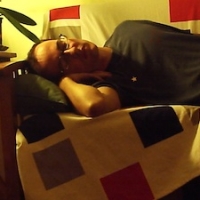Learning While Sleeping

A while back, I made a case for napping on the job to recharge a tired mind, boost energy, and increase productivity. Now there’s evidence emerging of what this podcast describes as "the real-world version of a widespread fantasy, the idea that you could somehow learn while sleeping.”
Of course, the kind of research being done in this area is still somewhat removed from learning a new programming language while asleep or learning how to use your latest digital device. For a long time, the problem has been that sleep-learning experiments are difficult to conduct. But researchers came up with a novel approach that entailed presenting sleeping participants with repeated pairings of a tone followed by either a pleasant or an unpleasant odor.
The participants reacted with a deep breath when there was a pleasant odor and a shallow breath when there was an unpleasant odor. After several pairings, researchers played the same tones but without the odors. The participants breathed exactly as they had to the odors both during sleep—and, later, when awake. Their brains had processed the link between tone and odor while they were asleep, and this unconscious learning modified their waking behavior.
Granted, it may be a while before you’ll be able to learn C++ at night or learn Swahili during the night and be ready to speak it fluently the next day. Of course, claims have been made for years that you can learn complex material by listening to audiotapes while you sleep, but these claims have just as often been refuted.
Another possibility, one that you can actually try tonight, is based on doing something called lucid dreaming, which allows you to use your dreams to help you solve problems. Lucid dreaming entails first learning to remember and make sense of your dreams. Then as you go to sleep, you aim to have a solution-oriented dream by focusing on a problem you want to solve. When you wake up, write your dreams down and start to look for the connection to your problem.
None other than inventor, author, and futurist Ray Kurzweil, active in optical character recognition, speech recognition technology, and electronic keyboard instruments, has used lucid dreaming to solve business, engineering, and even interpersonal problems.
Stay tuned for the day when you’ll be able to do lucid dreaming while napping on the job!

